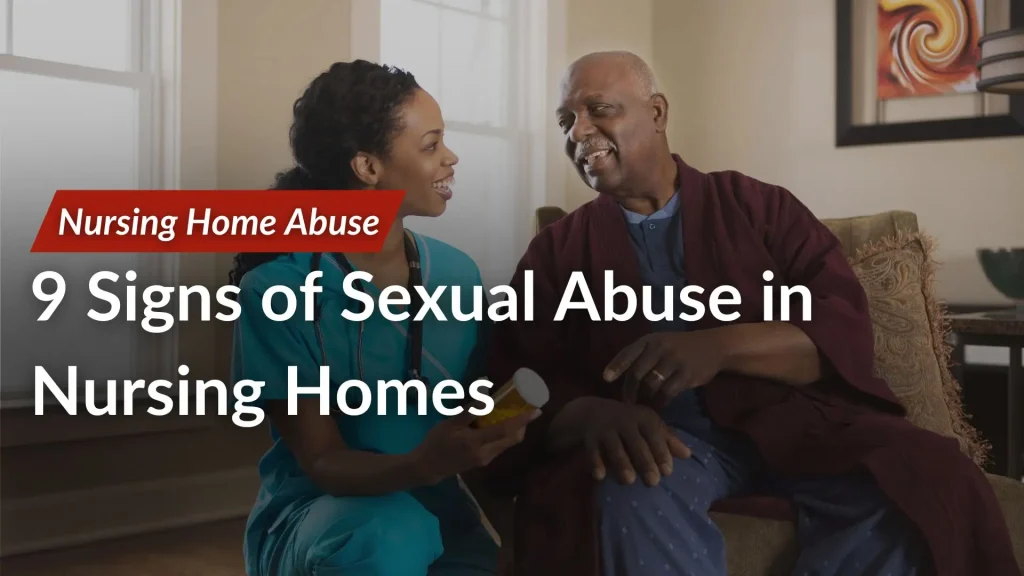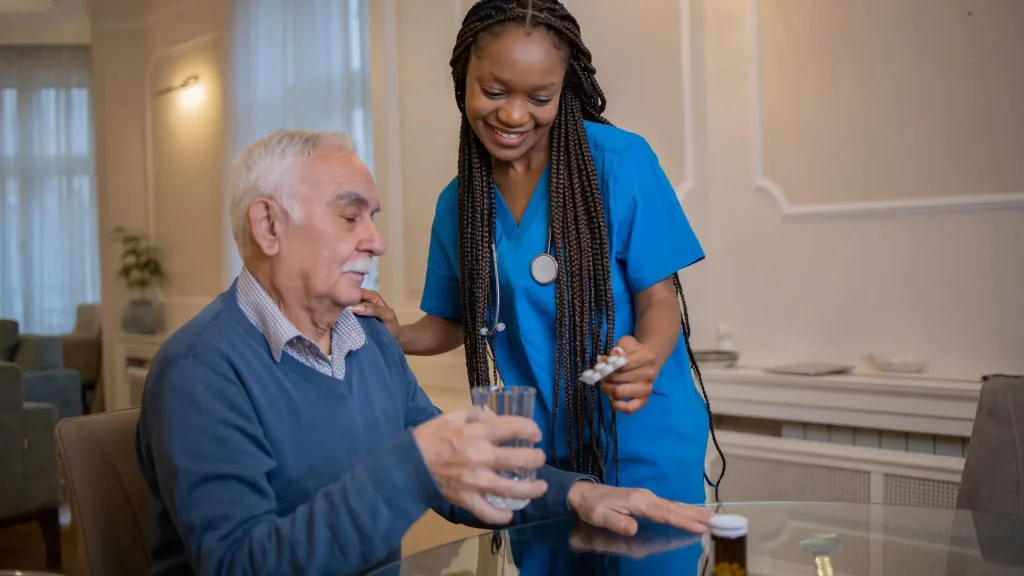 Entrusting a loved one into the care of a nursing home is one of the biggest decisions you can make about their well-being. So, if you begin to suspect that they are the victim of sexual abuse within the establishment that is supposed to protect them, the feelings of anger and injustice can be overwhelming. Recognizing the signs of sexual abuse in nursing homes is the first step toward getting your loved one the help they need and holding the wrongdoer accountable for their actions.
Entrusting a loved one into the care of a nursing home is one of the biggest decisions you can make about their well-being. So, if you begin to suspect that they are the victim of sexual abuse within the establishment that is supposed to protect them, the feelings of anger and injustice can be overwhelming. Recognizing the signs of sexual abuse in nursing homes is the first step toward getting your loved one the help they need and holding the wrongdoer accountable for their actions.
What Is Nursing Home Sexual Abuse?
Nursing home sexual abuse is any unwanted sexual contact or behavior imposed on a resident by staff members, other residents, or visitors. This heinous act can take various forms, ranging from unwanted touching to rape. However, it is crucial to understand that sexual abuse doesn’t always involve physical contact. It can also include verbal harassment, forced nudity, or taking sexually explicit photographs without consent.
The vulnerability of nursing home residents makes this form of abuse particularly egregious. Many residents have physical or cognitive limitations that make it difficult for them to resist or report abuse. Some may not even fully understand what’s happening to them. This vulnerability underscores the importance of vigilance from family members and caregivers in detecting and reporting signs of abuse.
What Are the Main Signs of Sexual Abuse in Nursing Homes?
Recognizing the signs of sexual abuse in nursing homes is essential for protecting your loved ones. While some indicators may be obvious, others can be subtle and easily overlooked. Here are some key signs to watch for:
- Bruising around private areas
- Unexplained anal or vaginal bleeding
- Genital infections or venereal disease
- Blood on clothing or bedding
- Sudden behavioral and emotional changes
- Panic attacks or post-traumatic stress symptoms
- Reluctance to be alone with particular staff members or residents
- Agitation or aggressive behavior
- Self-harm or suicidal thoughts
It is worth noting that the presence of one or more of these signs does not automatically mean sexual abuse has occurred. However, they should prompt further investigation and possibly a report to the appropriate authorities. If you notice any of these signs, acting quickly can protect your loved one and prevent further harm.
What Are the Risk Factors Associated with Sexual Abuse in Nursing Homes?
Several factors can increase the risk of sexual abuse in nursing homes:
- Cognitive impairment – Perpetrators may target residents with dementia or Alzheimer’s disease due to their reduced ability to report abuse.
- Physical disabilities – Those who cannot defend themselves or move away from abusers are more vulnerable.
- Social isolation – Residents with few visitors may be seen as easy targets.
- Understaffing – Inadequate supervision can create opportunities for abuse.
- Insufficient background checks – Failing to screen employees properly can allow predators into the facility.
- Lack of proper training – Untrained staff may not recognize signs of abuse or know how to respond appropriately.
- Poor facility layout – Areas with limited visibility or inadequate security measures can enable abusive behavior.
What Are the Effects of Nursing Home Abuse on Elders?
The impact of sexual abuse on elderly residents can be devastating and long-lasting. Short and long-term consequences may include:
- Physical trauma – Injuries from abuse can lead to chronic pain or mobility issues.
- Psychological distress – Victims often experience depression, anxiety, and PTSD.
- Social withdrawal – Many abuse survivors isolate themselves from others.
- Decreased quality of life – Abuse can rob elders of their sense of safety and dignity.
- Worsening of existing health conditions – The stress of abuse can exacerbate other medical issues.
- Loss of trust – Victims may struggle to trust caregivers or form relationships.
What Should I Do If I See Signs of Abuse?
If you suspect sexual abuse in a nursing home:
- Take steps to ensure your loved one’s immediate safety.
- Document any signs or symptoms you observe.
- Report your concerns to the nursing home administration.
- Contact local law enforcement or adult protective services.
- Seek medical attention for your loved one.
- Consider moving your family member to a different facility if possible.
- Consult with a nursing home abuse attorney to understand your legal options and protect your loved one’s rights.
Remember, swift action can prevent further harm and help your loved one begin the healing process.
Demanding Justice After Nursing Home Sexual Abuse
 If your loved one has been the victim of sexual abuse in a nursing home setting, they deserve accountability and compensation for what they’ve suffered. This could include money for the following:
If your loved one has been the victim of sexual abuse in a nursing home setting, they deserve accountability and compensation for what they’ve suffered. This could include money for the following:
- Medical care
- Therapy and counseling
- Moving to a new facility
- Pain and suffering
- Reduced quality of life
Getting this compensation likely requires the help of an experienced nursing home abuse lawyer. They can investigate your concerns to determine who committed the abuse and whether anyone else abetted it. They can approach the nursing facility with the evidence they’ve encountered to seek an out-of-court settlement that spares your family the publicity of a trial. However, if you and your loved one prefer, your attorney can take the abuser and their employer to trial so that you can have your day in court.
Contact an Experienced Nursing Home Sexual Abuse Attorney in Tampa
Keeping senior citizens safe is one of our most vital duties. When an individual, group, or institution takes advantage of someone vulnerable, they must be held accountable for their actions. Working with an experienced and skilled nursing home abuse lawyer can give you the support and advocacy you need to secure a just result.
The skilled legal team at Jurewitz Law Group Injury & Accident Lawyers has a profound understanding of how to handle cases involving complex and sensitive matters such as sexual abuse in nursing homes. Our founder, Ross Jurewitz, has been a champion for those in need for nearly 25 years. With his compassion, skills, and track record of success, you can feel confident that you have the counsel of a legal pitbull on your side. Call us today at (619) 233-5020 or contact us online for a free consultation with a nursing home abuse lawyer in Tampa.
Related Posts:
Can You Reopen a Closed Insurance Claim in Florida?
Personal Injury Claim vs Lawsuit: What’s the Difference?
The Long-Term Impact of Florida Nursing Home Abuse on Elderly Residents


